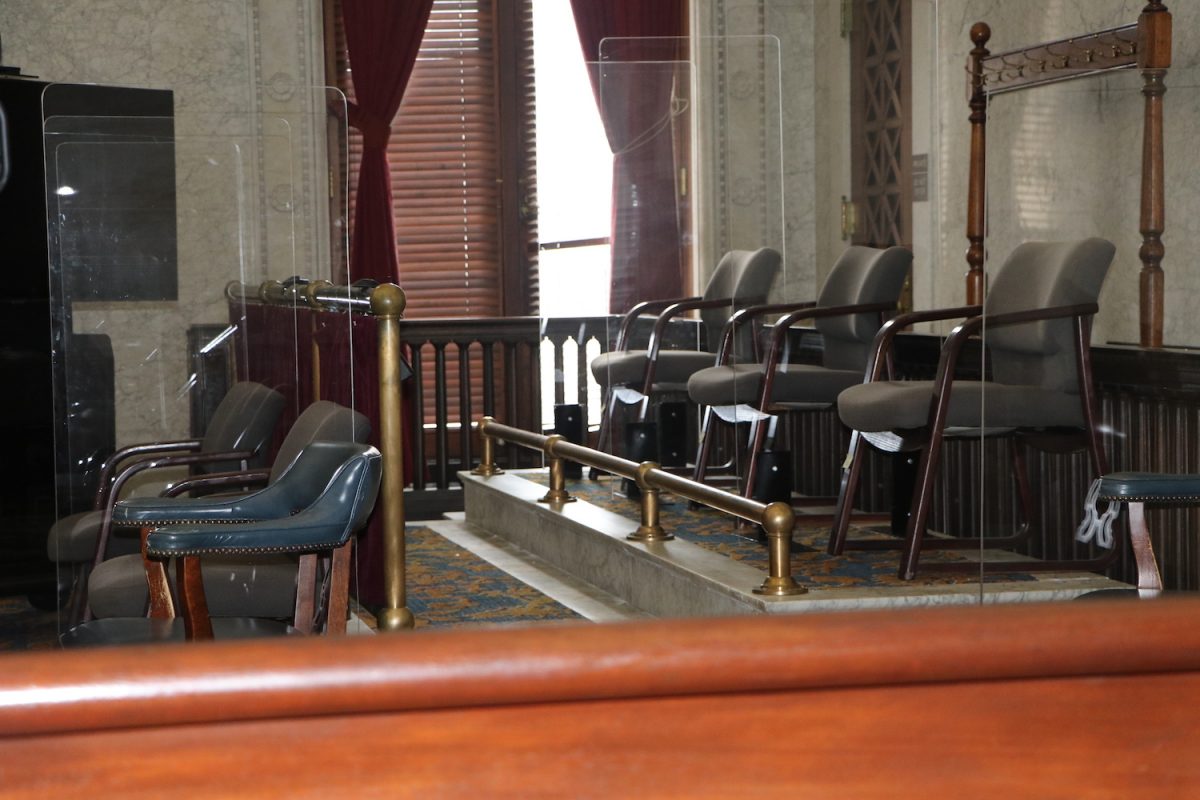
Thank you for reading Baltimore Witness. Help us continue our mission into 2024.
Donate NowBy
Andrew Michaels
- September 21, 2023
Court
|
Daily Stories
|
Homicides
|
Suspects
|
Victims
|
Shakira Shaw grieved after the death of her 22-month-old son, Kaleb Shaw, from what medical examiners determined was due to natural causes. This grueling grief process combined with Shaw’s battle with mental illness created an illusion that her defense counsel said consumed her, making her believe she killed her child.
The 26-year-old mother is currently on trial for first-degree murder and first-degree child abuse resulting in death for allegedly smothering Kaleb to death with bedsheets on Dec. 28, 2019, at the family’s home on the 400 block of Aisquith Street.
Baltimore City Circuit Court Judge Charles J. Peters is presiding over the trial, which began on Sept. 20 with opening statements.
“There’s no stronger bond than the bond between a mother and her son,” the prosecutor told jurors Wednesday afternoon, following a two-day jury selection process. “…Shakira Shaw broke that bond.”
According to the assistant state’s attorney, paramedics were called to Aisquith Street for a report of an unresponsive child. Kaleb was taken to a nearby hospital, where he was pronounced dead at 7:23 p.m. After a four-month investigation by the Baltimore Police Department (BPD) and the medical examiner’s autopsy, Kaleb’s death was reportedly caused by a fatal arrhythmia from a birth defect.
Months later, on Aug. 22, 2020, the prosecutor explained, Shaw called BPD and “asks how much time someone would serve if they admitted to killing their child.” During Shaw’s interviews with police, she allegedly confessed to killing Kaleb—a confession the prosecutor said the jury will hear during the evidence portion of the trial.
The medical examiner who performed Kaleb’s autopsy, Kaleb’s godmother and Shaw’s former friend are also expected to testify.
Shaw’s defense attorneys Stephanie Salter and Janine Meckler disputed the prosecution’s argument, saying Kaleb was “deeply, deeply loved by his mother.”
Kaleb’s death was caused by an “conduction system abnormality,” Salter said, which was found after medical examiners reviewed samples of his heart tissue.
“She was lost. She was grieving and didn’t know how to grieve,” Salter continued, describing Shaw’s struggles with depression.
In that time, Shaw was hospitalized for an attempted suicide and began having auditory and visual hallucinations of both the child she aborted in 2016 and the child she lost after a miscarriage in November 2019.
Salter argued that Shaw’s statements to police were made at a time when she was suffering from these hallucinations and genuinely believed she was behind Kaleb’s death. BPD reported Shaw’s alleged confession to the medical examiner, who then ruled the toddler’s death as a homicide.
There is no additional evidence of Shaw’s involvement aside from her alleged confession, Salter concluded.
Shaw’s trial is set to resume on Sept. 21.
Follow this case